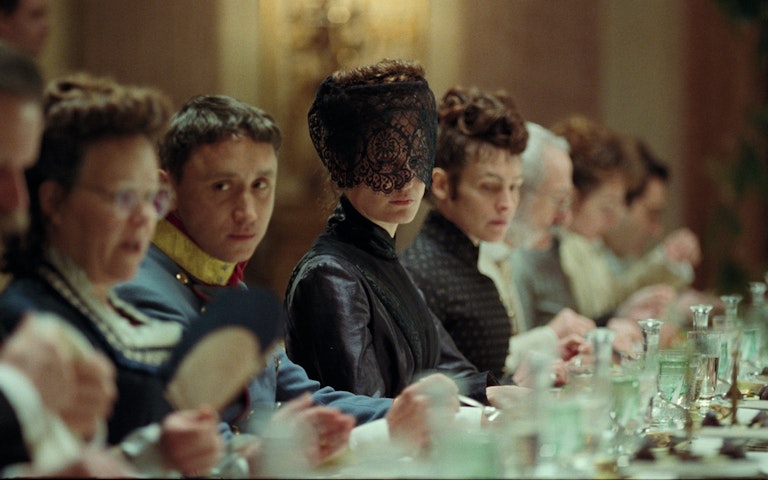Young Critics Review: Drii Winter

Drii Winter, the second feature by Swiss director Michael Koch, opens with a static shot of an enormous rock. In the bottom right-hand corner, we glimpse a road and perceive the distant noises of passing motorbikes and cars, evidence of a world that seems to have nothing to do with the inscrutable indifference of nature represented by the boulder. A choir of singing voices helps to hide the road noise and introduce a sense of solemnity to this landscape picture, as if to impose a feeling of ecstasy and enchantment on the spectator. Finally, a blanket of fog ends up obstructing the view of the street altogether, thus completing the operation of camouflage and at the same time sublimation initially carried out by the choir.
The film has at its centre a pair of lovers about to get married: Anna, a barmaid with a daughter from a previous relationship, and Marco, a mountain farmer with strong arms and a childlike face. Their love idyll has the appearance of a dream, of something unreal, as they confess to each other. The music, both diegetic and non-diegetic, acts as an expression of this idyll, in this way taking over the sublimating function of the choir in the first scene. An evocative, albeit minimalist, score attributes poetic resonance to the landscape in which Marco and Anna make love, while in another scene a song on the radio serves as a pretext for a sly seduction scene. But it soon becomes evident that the music in the film voluntarily represents both an imposition and an imposture, as it imposes a feeling or, more generally, a certain way of looking at the images, which, on the contrary, seem to tell another reality when they are deprived of any musical accompaniment. For example, the music played in church by the organ during the wedding of the two gives a sense of solemnity and emotion to the scene, immediately belied, though, by the chatter of a band of musicians outside the church, which is impossible to ignore the very moment the organ music stops. Without any musical commentary to sublimate it, nature soon shows its harsh and senseless face, as in the scene showing the sexual act between a bull and a cow. This animalistic fury slowly begins to intrude into the relationship between Marco and Anna: Marco discovers he has a tumour in his brain, which leads him to gradually turn into a sort of animal (Anna will catch him masturbating in front of her daughter). The innocence of the beast represents a scandal in the world of men.
Koch’s film is an intelligent and remarkable commentary on the radical impossibility of looking at nature with a pure gaze and the need, on the contrary, to camouflage and idealise it.
Koch’s film is an intelligent and remarkable commentary on the radical impossibility of looking at nature with a pure gaze and the need, on the contrary, to camouflage and idealise it. It is not difficult to understand what, more than anything else, this sublimation attempts to conceal: the fear of death, a sad law of nature from which no one can escape. "I don't want to die", Marco confesses to Anna, and the same sentence is later repeated by her daughter, showing how this fear tends to reproduce itself from generation to generation. In the scene where Marco is transported by car to the hospital, the camera (supported by extradiegetic music) slowly moves towards the snow-covered trees by the side of the road, as a temporary exorcising of the impending death. “Come, sweet death”, sings the choir. Marco's death will not actually come until later (apparently in p.o.v.), with no choir or musical accompaniment in the background, only the chirping of a few birds and the sounds of his wife from the other room, a lukewarm light coming in through the window.

Angelo Elia
I am an Italian cinephile currently living in Turin and have recently completed an MA in film and media studies. I occasionally write about movies, particularly American movies and even more particularly westerns (I wrote a thesis on the cinematic representations of Wyatt Earp).


